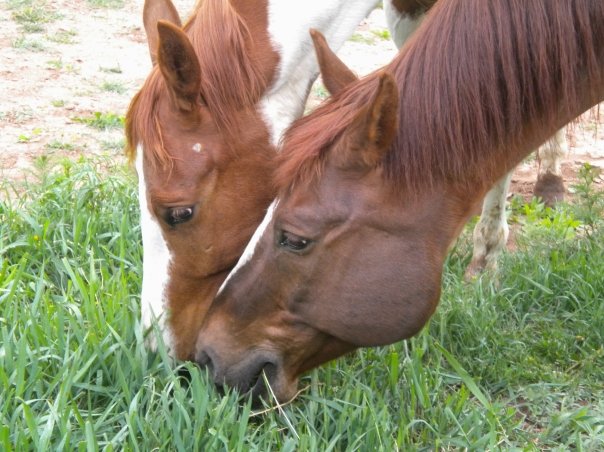NAHMS 335 Parasite Fecal Data Collection Record
Equine 2015 Study
NAHMS 335 Equine Fecal Parasite CER - 2Post_omb
Equine 2015 Study
OMB: 0579-0269
NAHMS
Equine 2015
PARASITE
FECAL
Data
Collection Record
POST-Deworming
National
Animal Health Monitoring System
2150
Centre Ave, Bldg B
Fort
Collins, CO 80526
Form
Approved
OMB
Number 0579-0269
EXP.
DATE; XX/20XX


 Animal
and Plant
Animal
and Plant
Health Inspection
Service
Veterinary
Services
Instructions
10 to 14 days after administering dewormer, collect the 2nd sample from the same animals that were sampled before dewormer was administered.
Please make sure you use the same sample number for each equid for both the PRE-and POST-deworming samples. Refer to your pink copy of the PRE-deworming data collection form to make sure the sample numbers match.
This is very important. If the sample numbers don’t match, the test results cannot be compared and dewormer resistance cannot be determined for each animal.
Collect fecal samples from the same equids that were sampled pre-deworming (see collection instructions for details).
Write the farm ID, sample number, and the equid name or unique ID on a label. Place the label on the sample bag. Complete the corresponding row on the data collection form for each equid.
Each sample number must be associated with the same equid PRE and POST deworming. Samples must be fresh (not petrified). Do not exclude diarrhea samples.
Cool samples down as soon as possible. Refrigerate them or keep them cool in the styrofoam shipping box with ice packs for up to 72 hours (3 days). Replace ice packs as needed to keep the samples continuously cooled. Do not freeze the samples.
Include the yellow copy of the data collection form in the shipping box. Keep the pink copy for your records. Mail the white copy to NAHMS in the enclosed envelope.
Ship the samples with an ice pack no later than 72 hours (3 days) after collection. Ship via FedEx using the provided pre-paid FedEx label. Ship only on Monday through Wednesday. The lab cannot receive samples Friday through Sunday.


According to the Paperwork Reduction Act of 1995, an agency may not conduct or sponsor, and a person is not required to respond to, a collection of information unless it displays a valid OMB control number. The valid OMB control number for this information collection is 0579-0269. The time required to complete this information collection is estimated to average 2 hours per response, including the time for reviewing instructions, searching existing data sources, gathering and maintaining the data needed, and completing and reviewing the collection of information.
NAHMS-335
July 2014
Sample # |
Equine name or unique ID |
Age
(months
|
Gender (see codes below) |
Equid type (See codes below) |
Condition
of 1=Normal 2=Soft/cowpie-like 3=Watery 4=Bloody 5=Other (describe) |
Did
the equid experience the listed conditions in the previous If none enter 0. |
Dewormer used after first sample collection (enter code) |
Date dewormer was given after first sample collection |
Did
the equid have an adverse reaction (Yes/No) If yes, please describe: |
1 |
|
___ mo
___ yr |
|
|
|
|
|
|
|
2 |
|
___ mo
___ yr |
|
|
|
|
|
|
|
3 |
|
___ mo
___ yr |
|
|
|
|
|
|
|
4 |
|
___ mo
___ yr |
|
|
|
|
|
|
|
5 |
|
___ mo
___ yr |
|
|
|
|
|
|
|
6 |
|
___ mo
___ yr |
|
|
|
|
|
|
|
Parasite POST-deworming data collection form
Gender codes:
1 = Intact male 2 = Castrated male 3 = Nonpregnant female 4 = Pregnant female 5 = Spayed female
Equine types:
1 = Horse 2 = Mule 3 = Donkey 4 = Pony 5 = Miniature horse 6 = Other
Condition codes:
1 = Colic* 2 = Rough hair coat 3 = Weight loss 4 = Diarrhea** 5 = Passed worms in feces 6 = Rubbing base of tail
*Signs of abdominal pain, rolling, kicking at belly, pawing.
**Manure that is loose or watery, not fecal balls.
| File Type | application/vnd.openxmlformats-officedocument.wordprocessingml.document |
| File Title | pasture.PDF |
| Author | Unknown |
| File Modified | 0000-00-00 |
| File Created | 2021-01-26 |
© 2026 OMB.report | Privacy Policy